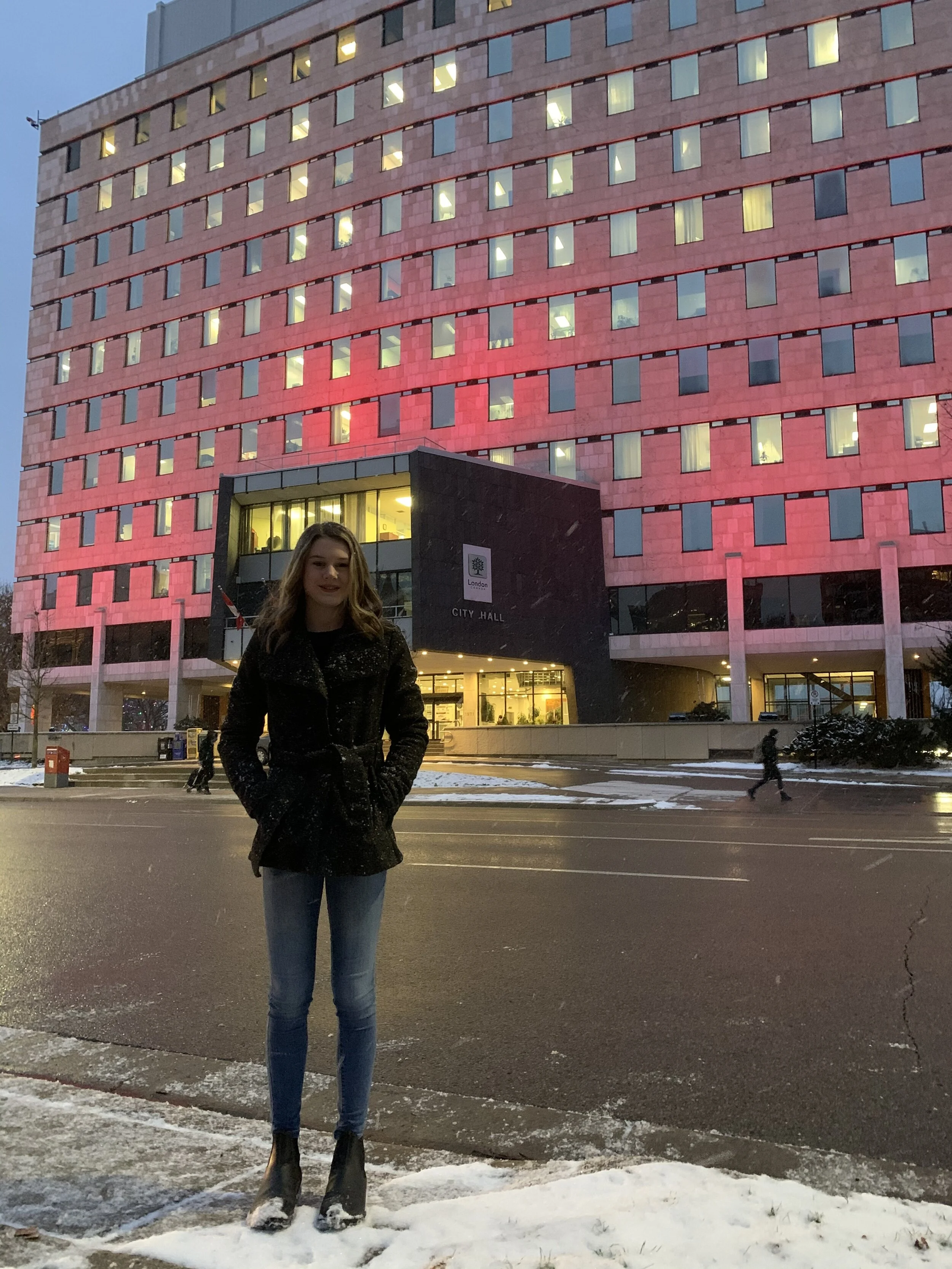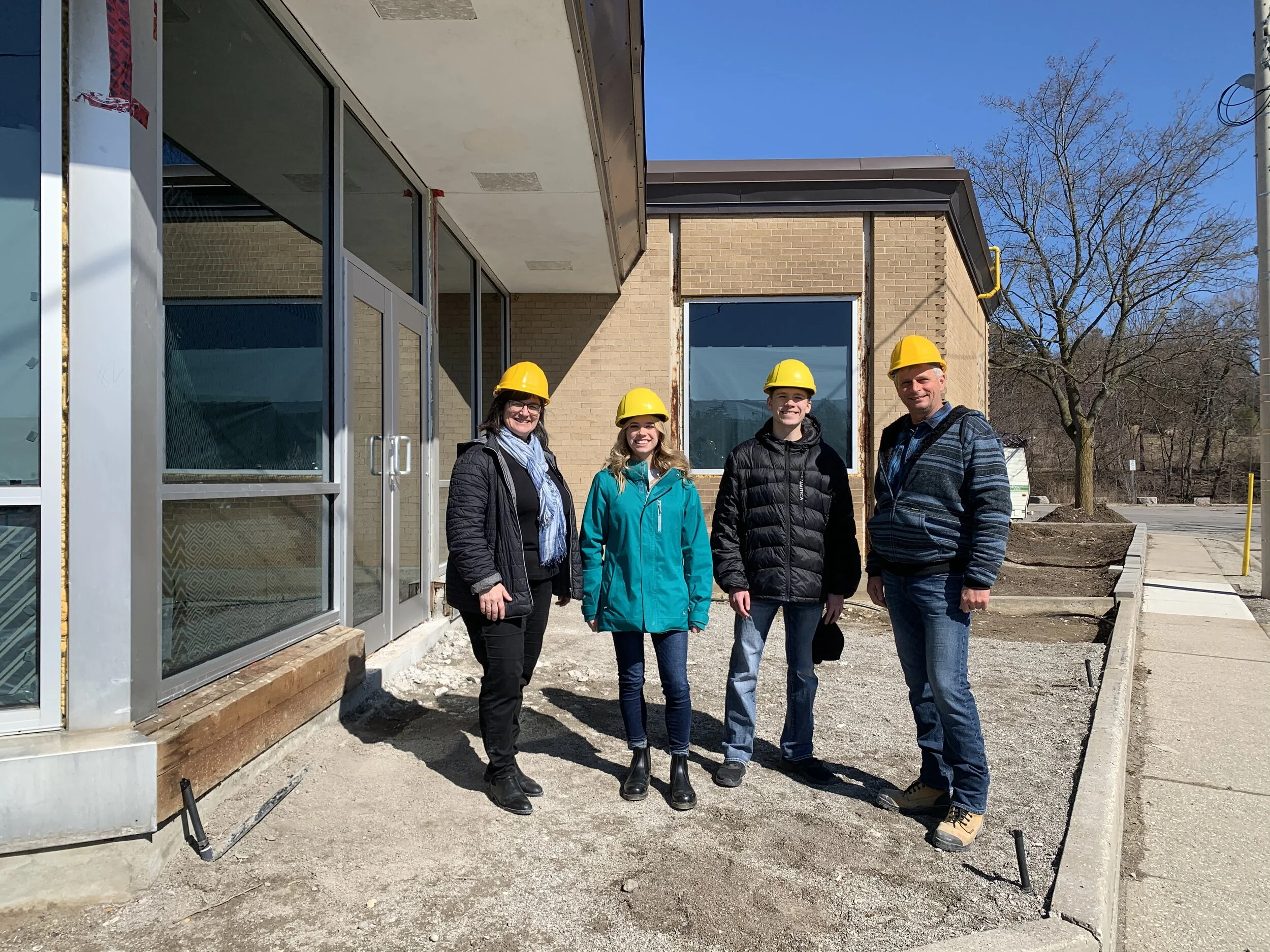The Art of the Possible: Bringing Film Production to London
Sophie Mutch is a grade nine student at Sir Frederick Banting Secondary School in London, and joined our team at young & free press back in summer 2020. She has a strong interest in the arts.
As we closed out 2020, I tried to think of what exciting things there are to look forward to in 2021 here in southwestern Ontario. At the same time, I was dreaming of a trip to New York City and listing the places we would visit, including some iconic film locations. This made me wonder how many people know about the possibility of London hosting film productions in the future.
At the end of August, London City Councillor Michael van Holst proposed the idea of opening a film office in London. The project would require $300,000 a year for three years and would aim to bring some of the film industry from the US to London. This would help the local economy, as well as possibly provide an exciting expansion of the film industry locally. A decision on funding was initially deferred, but recently has been re-evaluated and approved. Councillor Phil Squire stated, ‘‘This is something that I’m satisfied, after talking with people, can become a reality.”
Cambridge has already opened a film office, and has found some success as they have hosted The Handmaid’s Tale, Murdoch Mysteries, and others films there. More film productions have popped up in southwestern Ontario communities in recent months, including The Ace and the Scout in Sarnia, Trigger Point in Bayfield and Locke and Key in Port Stanley. The Apple TV series See starring Jason Momoa was shooting just south of St. Thomas before the pandemic. This demonstrates the exciting potential of the film industry to develop in Ontario in cities outside of Toronto. Tempering the excitement, Councillor Squire remarked that the success of a possible film industry in London will depend on how the film office is led: ‘‘If you’re talking about this kind of office,” he observed, “the key element is the person who is in charge of the office.”
As for the reasoning behind the $300,000 annual cost, the office would require a film officer, and due to the travel involved, likely another employee serving in a supportive role. This would translate to $100,000 to $150,000 spent yearly on labour alone. Councillor Squire noted that ‘‘people are very excited about this position, but they want to see it properly funded.” He added the following: ‘‘I think, in these circumstances, that $300,000 is the appropriate amount of money, and that it’s needed.’’
Councillor Shawn Lewis added that he believed that “it will be very easy to add some metrics around this. We will be able to calculate how many hotel-stays that are generated, how many, perhaps, studio bookings or spin-offs to digital tech companies that have been created. It will be easy to see if this works or not, and in three years when the pilot project ends, we will then be able to decide whether or not the return on investment justifies an ongoing permanent cost, or whether it’s time to fold our tent on this one.’’
In fall 2019, Maddie King (right) of young & free press hosted the inaugural Forest City Youth Film Festival at the Wolf Performance Hall in downtown London along with fellow high school student Sean Hodgins.
Dorothy Downs, Executive Director of the Forest City Film Festival, spoke with us recently about the film office, noting the importance of having producers start to look at London as a viable place to shoot a film. “Having a person who will go and advocate at the different levels of government for favourable tax programs for productions – that’s really important, and those are all big, big jobs, you can’t just expect somebody who’s volunteering and interested to do this, you need to pay somebody to do these things, to advocate for London,” she remarked. “So, having that person in place, advocating for London, London is open for business, London is capable of handling this, and helping to build all of the little elements that are needed to really put a film industry in the city – it’s important. It’s a fantastic move that there’s now going to be money there to cover the cost of having a person or people do these roles that need to be done.’’
London is a decent-sized city with lots of amenities. There is a good balance of city scenery downtown as well as country views in the surrounding areas, such as Middlesex County. This could be ideal as the setting can easily cater to many different television and film productions.
‘‘Location, that’s one of the most important things in a film, is finding the right locations,” notes Downs. “So, that is definitely a big starting point … it’s important for films to find locations that haven’t been used a hundred times.’’ Continuing on this theme, she notes a few ways that London can capitalize on what is already in place, saying important factors include ‘‘ease of finding places for people to stay at a reasonable cost, finding, you know, the secondary services that films need to run, office spaces, places for people to stay. It’s all less expensive and plentiful here.’’
The film office could offer new employment opportunities for Londoners, and the city could become more of an attraction. Film productions often rely heavily on local businesses while filming. ‘‘I see this as a great opportunity to invest in London and Londoners for employment and training, and I’ll continue to support this,” stated Councillor Elizabeth Peloza during discussions on the subject back in December.
Councillor Lewis spoke on the economic impact of a film industry in London, saying ‘‘I am supportive of it, because I do see it as economic development … the ability for hoteliers to attract people from productions to stay in their hotels overnight, the spin-offs to restaurants, those things are all benefits as well. It’s not just the opportunity for the film industry, but also for the service and hospitality industry that will support it, if we are able to bring some production work to London.’’
Building the film industry in London could also bring more students and professors to Western University and Fanshawe College film programs. This could potentially get more people invested in the future of the film industry in the community. ‘‘I’m interested in keeping our bright young folk here in London to pursue the careers that they are looking to right here in our town without having to leave,” mentioned Councillor Steve Lehman, “and this does present that possibility.’’ Downs added this thought about students remaining in London after graduating: ‘‘Those students will have the benefit of not having to move away in order to have a living wage, finding enough work without having to necessarily move to one of the big film hubs: Toronto, Vancouver, Montréal. So, that’s a huge benefit for graduates.’’
In addition to post-secondary students, Councillor Peloza is also excited ‘‘even for those in high school that are looking into getting into an industry.”
In our conversation, Downs noted how ‘‘once a film industry is really consistently built in this city, then there are really cool opportunities that come from that, you know like being an extra in a film is an amazing opportunity, and of course, that’s something that kids will benefit from … but the money from City Council is specifically to build the film industry, but there will be spin-offs that will benefit high school kids and elementary school kids and just the potential of being able to engage with the film industry.’’
Madison Comfort (at right) of young & free press joined fellow high school student Avery Mensah to host the 2020 Forest City Youth Film Festival. Due to the pandemic, the event was held online.
As the demand for film on streaming services and cable continues to grow, Councillor Lehman believes that, ‘‘as we move into the future, that might also provide some possibilities, where it will not just be a big billion-dollar Hollywood production, but things on a much smaller scale that would allow communities such as London to tap into.’’
Right now, I have to wonder how the pandemic will impact this plan, as southern Ontario is in lockdown and the effects will be felt in the local economy for months and likely years. There will be a lot of rebuilding to do. Although London will still carry the advantage of the cheaper Canadian dollar, will it still have a ‘pandemic advantage’ of less restrictions for the film industry over larger cities such as Toronto or major US locations? One of the initial ideas floated out was that, during the pandemic, smaller cities may be more attractive to film companies. This may not be the most resilient idea. The longer-term vision may matter most.
I like to imagine spots in downtown London becoming tourist destinations once a successful production has been filmed there. If we can get to that point, the film office in London will have been worth the investment.
Our team at young & free press has been involved recently in producing short documentary films about projects that we have been working on in St. Thomas and Elgin County. First up is ‘Track to the Future’ about the ongoing mural project in St. Thomas. Check out the documentary by filmmakers Ryan Gransden, Mark C. Edwards and Matthew Mosley here. More short films shot in the area will be released later this year.








